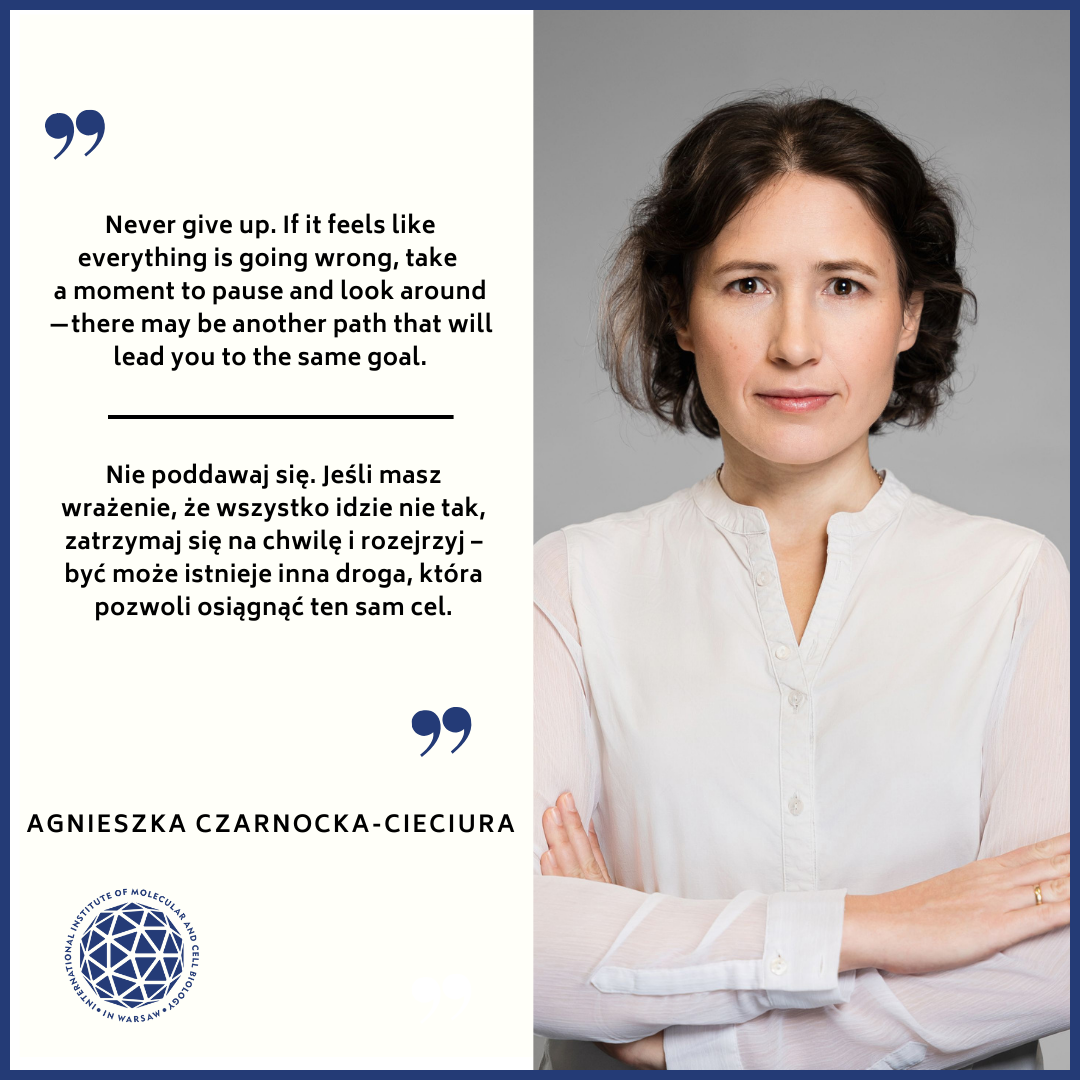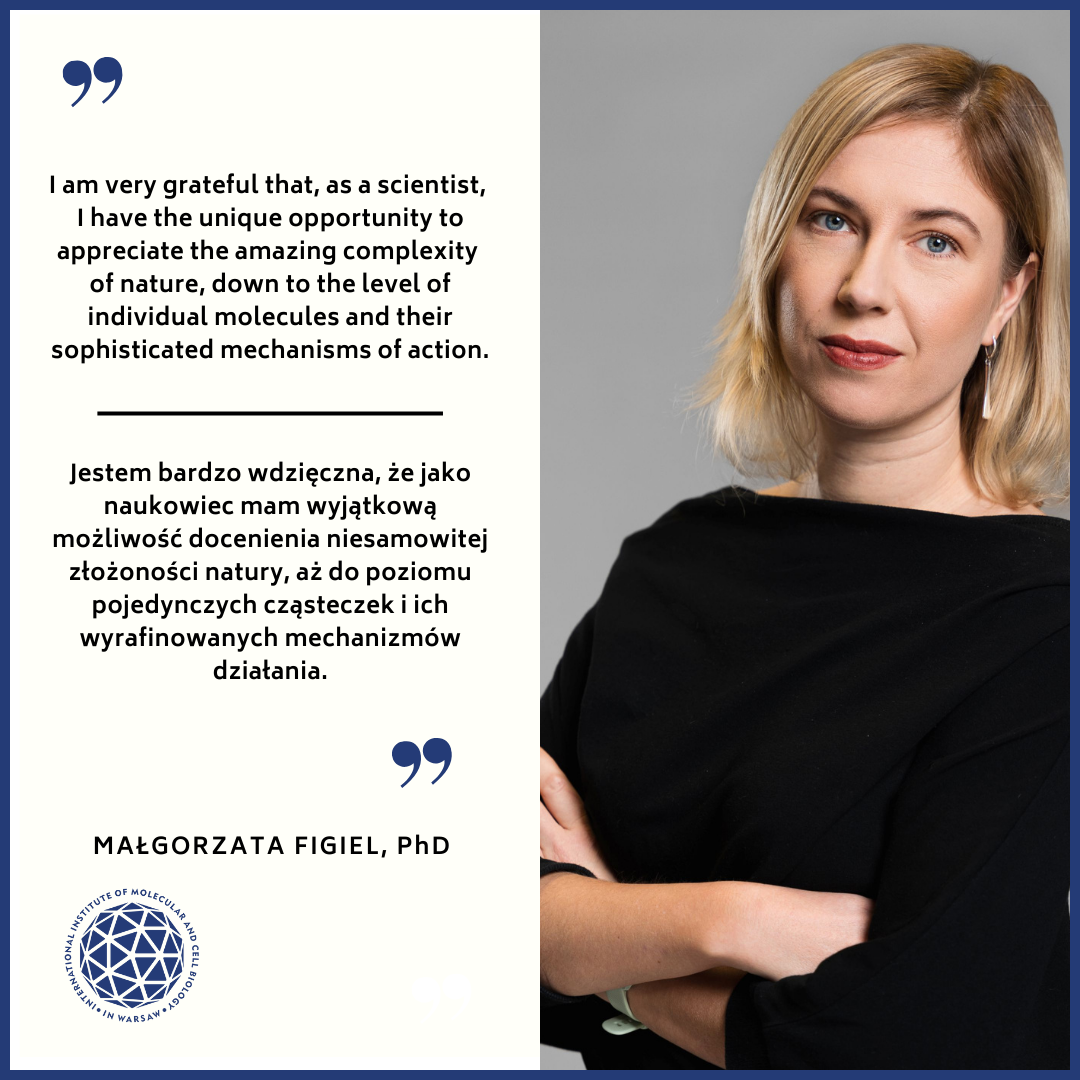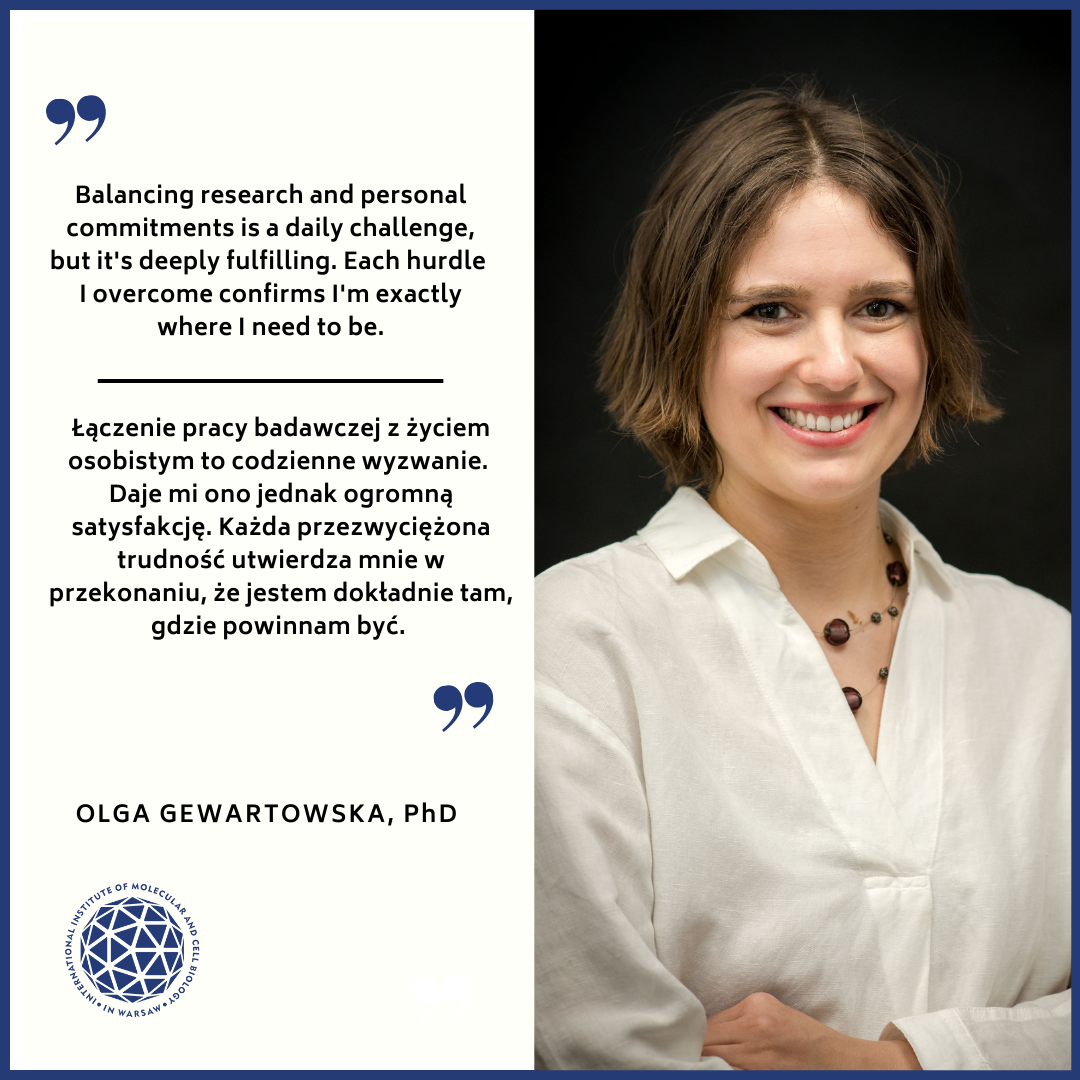International Day of Women and Girls in Science – Strength, Passion, Discovery
On February 11, the world marks the International Day of Women and Girls in Science, established by the United Nations to recognize the contributions of female researchers to scientific progress. It is also an opportunity to examine their presence at the International Institute of Molecular and Cell Biology (IIMCB).
At our Institute, half of the researchers are women—they are doctoral students, technicians, postdocs, and lead research groups as well as core facilities. Alongside their colleagues, they conduct research and contribute equally to scientific achievements that shape modern molecular and cell biology. Meet three of our researchers and co-authors of publications recognized in this year’s Best Papers Awards competition.
Agnieszka Czarnocka-Cieciura
Laboratory of RNA Biology - ERA Chairs Group
Agnieszka Czarnocka-Cieciura is a bioinformatician specialising in the molecular mechanisms regulating gene expression in eukaryotic organisms. Initially, her scientific interests focused on entirely different topics. She completed both her undergraduate and master's degrees at the Faculty of Biology at the University of Warsaw, conducting research projects on the evolution and systematics of plants from the Apiaceae family using molecular phylogenetics. This method allows for the determination of evolutionary relationships between organisms based on genetic similarities. In 2016, she was awarded a grant from the National Science Centre, aimed at developing methods for studying mutations in genes encoding RNA molecules that form part of ribosomes. In 2021, she joined the RNA Biology Laboratory at the International Institute of Molecular and Cell Biology to investigate post-transcriptional gene regulation pathways using data obtained through direct RNA sequencing, a method developed by Oxford Nanopore. She is currently preparing for a PhD defence, focusing on the impact of polyadenylation and deadenylation processes on mRNA stability in the cytoplasm.
Małgorzata Figiel
Laboratory of Protein Structure
Małgorzata Figiel completed her Master's degree at the Intercollegiate Faculty of Biotechnology of the University of Gdańsk and the Medical University of Gdańsk. In 2008, she joined Prof. Marcin Nowotny's team at the International Institute of Molecular and Cellular Biology, where she conducted research on human ribonuclease H as part of her PhD project. After receiving her PhD, she remained affiliated with the lab, focusing on biochemical and structural studies of enzymes involved in the processing of nucleic acids, in particular DNA polymerases and reverse transcriptases. Dr Figiel is currently directing research in her own project, which aims to structurally characterise proteins involved in DNA replication in herpesviruses. 
Olga Gewartowska
Genome Engineering Unit
Olga Gewartowska is a molecular biologist specializing in RNA biology. She received her PhD from the University of Warsaw in 2018. Her focus revolved around generating and phenotyping CRISPR/Cas9-engineered mouse models to study RNA-modifying enzymes. In 2019, Olga joined the Laboratory of RNA Biology at IIMCB. By 2021, she was appointed head of the newly established Genome Engineering Facility, specializing in generation of genetically modified mouse models. She believes that in the next-generation sequencing era, mouse models for ultrarare pediatric diseases provide an invaluable diagnostic and therapeutic tool, bridging the gap between genetic discoveries and clinical applications. She is currently the head of the Technology Development Unit, devoted to the management of the IIMCB's Core Facilities, the IN-MOL-CELL research infrastructure. In this role, Olga closely collaborates with the Flanders Institute for Biotechnology (VIB), IIMCB’s advanced partner in the RACE project. 

